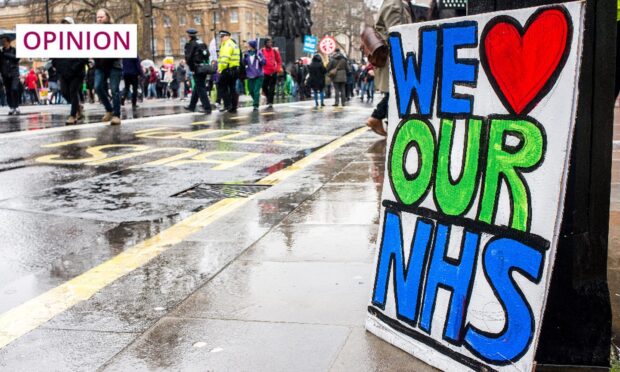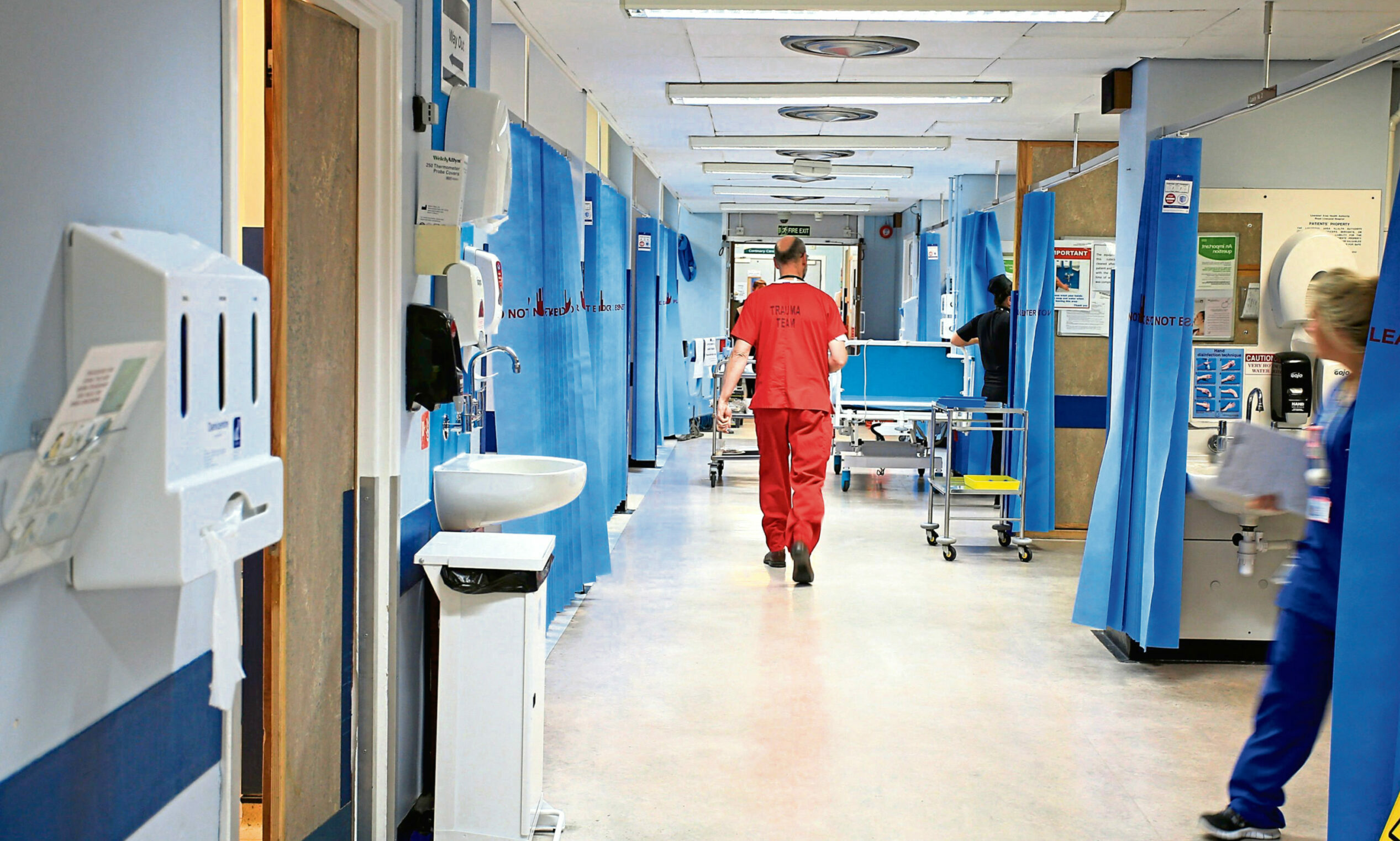Most of us treasure the NHS most of the time.
During lockdown, we took to our doorsteps to bang pots and pans in tribute to the sacrifices being made healthcare workers in the most abominable of circumstances. You regularly come across “I HEART NHS” bumper stickers and badges and keyrings. People get very cross indeed when it is criticised, or when it’s suggested a different model should be considered.
It’s not hard to understand why. When we or someone we love is ill, the NHS will be there for us. It mends, sustains and saves lives and is, therefore, by definition, a good thing. On my own occasionally wayward journey through life, I’ve had reason more than once to be grateful for its existence.
But, amid our affection and gratitude, too often we forget that the NHS is not a religion, but a system – there are countless alternatives across the world, many providing better outcomes for patients in vital areas.
The service is Scotland’s largest employer with more than 180,000 staff and 38,000 of them at NHS Greater Glasgow and Clyde alone. Like any large organisation, it consists of unromantic silos and action plans, conflicting opinions and internal politics, budget constraints, staff who are good at their jobs and staff who are not so good, those who will go the extra mile and those who will not.
This complexity is too often overlooked. The truth is that, for too long now, we have been slowly strangling the NHS with a toxic combination of sentimentality and neglect. Like a toddler with a puppy, we are in danger of loving it to death.
‘A workforce running on empty’
Next week, Reform Scotland, the think tank I run, will launch a major new research programme titled NHS 2048: Future-proofing Scotland’s Health and Social Care. In preparation, we’ve spent many months talking to health experts and other interested parties. Those conversations have been frank and genuinely alarming: a common warning has been that unless fundamental short, medium and long-term change is explored and implemented, the NHS could be lucky to see out the decade.
As Dr Iain Kennedy, the chair of BMA Scotland, told us: “Enough is enough, we cannot continue on this path if we want to futureproof our NHS for generations to come. The NHS in Scotland simply cannot deliver what is expected of it. It is a system bursting at the seams, with a workforce running on empty.”
The NHS was set up in 1948 by Clement Attlee’s Labour government. It was a time of rationing and scarcity for a population still ravaged by war, but bound by the great common effort of that experience. In future, healthcare would be funded from general taxation, enabling equity of access for all.
That settlement remains in place today, although the society it serves has changed fundamentally. Over time, the NHS budget has grown and grown, as the demands on it have increased. With our longer lives and ageing population, and with all the scientific advances in treatment and technology, the costs could only ever go one way.
Scots understand major surgery is required to fix and future-proof their NHS
Can the NHS reach its centenary in a condition that satisfies a very different Scottish population with very different demands and expectations? Reform Scotland’s programme will look at what needs to be done to ensure that is the case. Our only starting point is that healthcare will remain free at the point of need (there are actually reasonable arguments to rethink even this basic principle, but there is little political will to do so).
On Monday, as something of a context-setter, we released a report that reveals sharply rising waiting lists and times for orthopaedic procedures. Freedom of Information requests established that 11 health boards have seen at least a doubling in the wait time for a hip operation from point of decision, including an increase from 163 days to 386 in Greater Glasgow and Clyde, and from 114 days to 360 in Lothian. The waiting list for a hip operation has more than tripled since 2019 in Ayrshire and Arran, Dumfries and Galloway, Fife, Grampian, Lothian, and Tayside.
None of them seem willing to wrestle with the scale of what needs done, or even to relinquish control of the debate
These figures are a microcosm of what’s happening across the health sector. It’s surely obvious that we need a fundamental, mature and constructive debate that can build consensus around the measures that will improve and perhaps save our healthcare services. This will take in everything from the impact of advancing tech and AI, to staff recruitment, training and retention, to illness prevention, to the geographical location of key services. And much, much more besides.
Politicians are always quick to attack other parties’ NHS policies, but it’s hard to avoid the conclusion that when it comes to meaningful reform, they are frightened of their own shadows. None of them seem willing to wrestle with the scale of what needs done, or even to relinquish control of the debate to those who might be able to provide the answers. The NHS is the ultimate political football.
I believe the electorate is smarter than that – that Scots understand major surgery is required to fix and future-proof their NHS, and are open to the measures required, as long as they are explained carefully and rationally, and without being warped by party political prejudice. Reform Scotland will attempt to enable that discussion over the coming months.
Chris Deerin is a leading journalist and commentator who heads independent, non-party think tank, Reform Scotland












Conversation